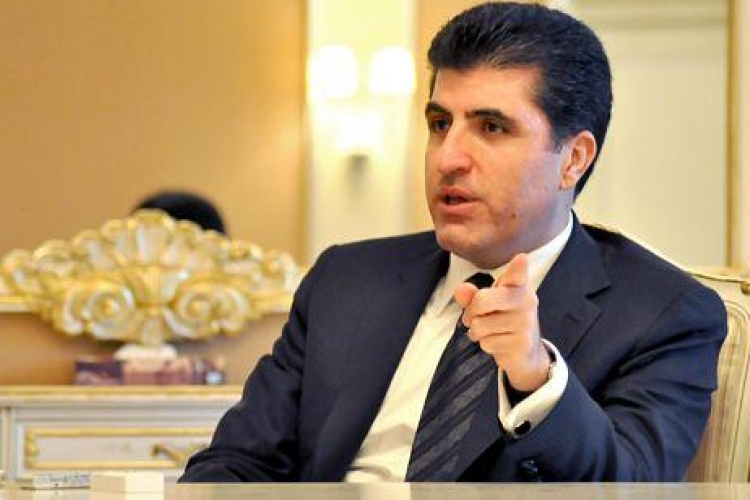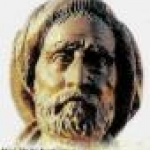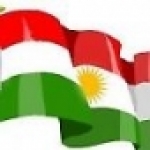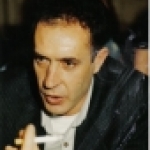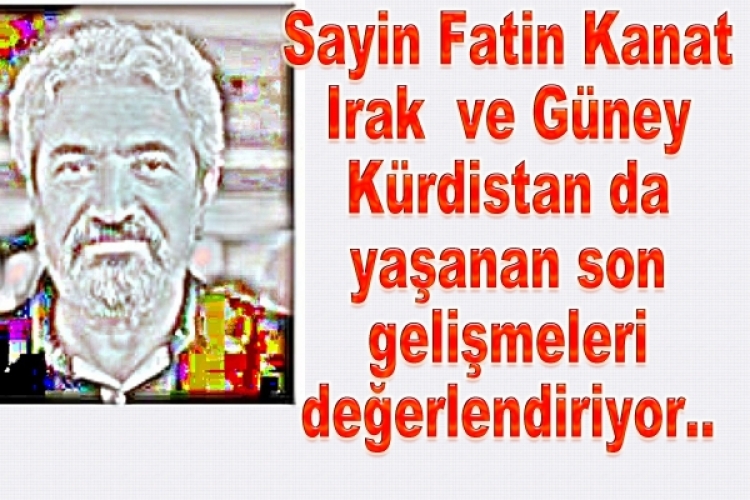Iraqi Kurdish Leader: PJAK And PKK Rebels Should Lay Down Arms
Rûdaw.net - Nechirvan Barzani, deputy head of the Kurdistan Democratic Party (KDP), recently traveled to Iran on a diplomatic mission aimed at ending the Iranian bombardment of Iraqi Kurdistan’s border areas. The artillery attacks, which Iran said were clashes with the Party of Free Life of Kurdistan (PJAK), claimed civilian lives and raised concerns that Iran was crossing into Iraqi territory.
Rudaw’s editor-in-chief, Ako Mohammed, sat down with Barzani, the Kurdistan region’s former prime minister, to discuss the details of his visit to Iran and a range of other issues.
Rudaw: You just returned from a visit to Iran. What did you discuss regarding shelling of the border areas and what agreements did you reach?
Nechirvan Barzani: Our talks went beyond that (the shelling). Our visit to Iran was ordered by Kurdistan Region President (Massoud Barzani) and the Prime Minister (of the Kurdistan Regional Government Barham Salih) was aware of it. The main issue on our agenda was tensions in the Kurdistan Region’s border areas. We met with the Islamic Republic’s senior political, diplomatic and military officials.
The Kurdistan Region’s policy is not to cause complications or intervene in neighbors’ affairs. Not only that, we want to have good neighborly relations with those countries based on mutual respect. But unfortunately, along the border areas the Kurdistan Region shares with Iran and Turkey, there is the PKK (Kurdistan Workers Party) and PJAK problem.
Of course those two groups are inseparable, because they have the same system and force. They are not different. Their presence in the mountainous border areas and the Kurdistan Region’s border villages has caused problems between the Kurdistan Region and its neighbors. Regarding Iran, I should say that unfortunately PJAK and PKK aren’t taking the Kurdistan Region’s interests into consideration. They always provide an excuse for those countries to attack the Kurdistan Region’s territory.
We now run a government and are no longer a (guerilla) force in the mountains. We are responsible for the life and well-being of the people of Kurdistan Region. Residents in border areas should not be at the mercy of Iranian and Turkish attacks because of attacks by PJAK and PKK.
Moreover, according to international law, you should not allow your soil to be used by another force to attack your neighbors. This is what PJAK is now doing. PJAK sends forces to Iran from its bases inside the Kurdistan Region; they ambush and kill Iranian soldiers and then return to their bases. This isn’t acceptable according to international principles and the Kurdistan Region cannot accept it.
This has now become a problem between the Kurdistan Region and Iran. During our visit to Iran, the Iranians told us they are not against the Kurdistan Region, but they told us frankly that they want the Kurdistan Regional Government to control its borders. They want to have the Kurdistan Region’s forces on the other side of the border. They said it isn’t reasonable that there are some people along Kurdistan’s border areas who launch attacks into Iran from time to time.
I have said before and will say it again now: PJAK needs to give up its armed struggle. The main victims of PJAK’s actions now are the people of Iranian Kurdistan and the people of Iraqi Kurdistan -- because their actions will not change anything except creating pressure and hardship for the Kurdistan Region. There are several other parties from Iranian Kurdistan, such as the Democratic Party of Kurdistan, Komala and others who are now based in (Iraqi) Kurdistan. They carried out armed struggle in the past and could still do so, but they don’t because of the Kurdistan Region’s interests. They have political activities.
I believe that PJAK also needs to make a decisive decision. In our opinion, it needs to give up armed struggle and lay down its arms. Today the Kurdistan Region has its own security plan, and it is the Kurdistan Region which is our priority.
Rudaw: Have you had any talks and made any decisions about deploying the Peshmarga and border guard units in the border areas and have the PKK removed their bases from those places?
Nechirvan Barzani: We are now in the process of extensive diplomatic campaign and are holding talks with all sides so as to realize that goal. We don’t want for problems to exist or for any side to face problems or for any fight to break out. We are now trying through peaceful and diplomatic means to have our forces deployed in the border areas.
Rudaw: A while ago, an Iranian newspaper said that the president of the Kurdistan Region supports PJAK and has allocated an area inside the Kurdistan Region for them. Did the Iranians make any complaints to you to that effect?
Nechirvan Barzani: Quite to the contrary, they clearly acknowledged that it must have been some irresponsible people making such remarks. The Iranians said they do not have any criticism of the Kurdistan Region or the president in that regard and they understand the situation very well. Iran’s demand is very clear. It says your territory cannot be turned into a safe haven for attacking Iran. As far as the norms of neighborly relations are concerned, that is a very legitimate demand. Secondly, they say we want to deal with your forces on the border areas and not PKK and PJAK’s.
Rudaw: But PJAK says its forces haven’t carried out any attacks in about a year.
Nechiravn Barzani: I don’t think that’s the entire truth. If that is the case, they have to clearly announce it. Why don’t they publicly say they have halted armed struggle? Some of their members have been arrested in Iran and are now in prison and many of them are Turkish citizens.
Rudaw: For weeks now Iran has stopped the Alwand River which flows from Iran into the Khanaqin region and other parts of Iraq. Did you raise that issue with them?
Nechirvan Barzani: We discussed that issue in detail with the Iranian president and the minister of foreign affairs. I can say they promised to resolve the problem as soon as possible. However, they say the water level on their side has also decreased and that it was not a political decision to reduce the Alwand. But we really pushed the issue and told them that this problem needs to be resolved. They promised to resolve it as soon as possible.
Rudaw: Will diplomatic visits between Iran and the Kurdistan Region increase? Are the Kurdistan Region President and senior Iranian officials expected to visit each other?
Nechirvan Barzani: For months now Iran has been sending the Kurdistan Region President an invitation to visit the country. The president has accepted the invitation and now the timing of the visit is being discussed. The president will definitely carry out the visit in an appropriate time for both sides.
Rudaw: Relations between Iran and Kurdistan Region had recently undergone some change. It has been said that relations between Iran and the KDP have deteriorated.
Nechirvan Barzani: Of course, there have been some ups and downs in the relationship between Iran and the Kurdistan Region, but there has been a fundamental stability to those relations as well. Iran is one of our neighbors and we share a long border. During the difficult days (Saddam Hussein’s regime) Iran extended a helping hand to the Kurdistan Region and was dealing with it right from the beginning.
During Halabja (an Iraqi Kurdish border town that was attacked by chemical weapons during the Iran-Iraq war), it took in several thousand Iraqi Kurds as refugees and the Iranian government and people helped us a lot with that.
I don’t claim that everything is perfect. There are undoubtedly problems, but if you look at the different phases of our relations, you will see that our relationship has continuously moved forward.
A few years ago, the volume of trade between us and Iran stood at US$600 million. Today it’s at US$5 billion and that’s a sign that relations have improved. Besides, all parties in the Kurdistan Region agree that we need good relations with the neighbors based on mutual respect.
KDP’s relations with Iran are not bad either. It’s true that sometimes things are said in newspapers, but those are not a big deal. If you just take those small things, then there are problems every day. But if you look at the larger picture, you will see the relationship is normal and friendly.
Rudaw: After the PKK guerilla attack on Turkish targets in Chale area on August 17, Turkey resumed artillery and aerial attacks into the Kurdistan Region. What do you think of the tensions?
Nechirvan Barzani: I do want to make a serious complaint about PKK with regard to its attacks. If you look at the situation before the PKK’s assaults, we see the PPK was in a position to reap great benefits, but unfortunately after the June 12 parliamentary elections, it implemented a wrong policy. If you remember, two months ago in an interview with the Turkish Milliyet daily I said the ball is in Turkey’s court and Turkey needs to take serious steps for a peaceful political resolution of the Kurdish issue. I even said that (PKK’s jailed leader Abdullah) Ocalan’s conditions in prison needed to be improved and that there needed to be a political dialogue with him to resolve the Kurdish issue.
There were high-level talks with Ocalan and he appeared to be a major player in the process. But the PKK’s mistakes disrupted the process and disrupted the efforts between Turkey and Ocalan too. The first mistake was the (pro-Kurdish) Peace and Democracy Party’s (BDP) boycott of Parliament. Its lawmakers did not attend the parliament sessions and did not take the official oath. That was a strategic mistake which they shouldn’t have made, especially under the current circumstances when there is the possibility that Turkey will draft a new constitution.
In an important event like that, they needed to be there and make their voices heard. As the Kurdistan Region President said, they needed to have their fight there. They didn’t give Prime Minister Erdogan any opportunity to see what he would and wouldn’t do after the election (in June).
The second mistake was launching armed attacks. The killing of the eight soldiers especially complicated the situation.
If you look at the geographical location of the attack, we see they did it on the border of the Kurdistan Region. If they had carried out the attack deep in Turkey’s territory, it would have been a different story. But by launching attacks in the border areas, they didn’t observe and respect the Kurdistan Region’s interests.
The third mistake was that as a result of PKK’s armed attacks, the talks with Ocalan were disrupted. They mistakenly turned Ocalan from a person they were having discussions with to a person who is isolated. If the PKK assesses these actions, they will see that these failed policies should have not been created in the first place.
Of course, there were huge mistakes. The killing of the (Turkish) soldiers was a mistake. We are also very saddened by the death of the innocent family in the Kurdistan Region as a result of Turkey’s air attacks. I do extend my condolences to them and wish their relatives patience in dealing with such a catastrophe. What is undeniable is that the Kurdish issue at this time will not be resolved or ended through war.
Rudaw: On the other hand, Erdogan -- who has been promising to solve the Kurdish issue, particularly during the June 12 elections -- recently said that in Turkey there is no such thing as Kurdish problem and that it is a “terrorism” problem.
Nechirvan Barzani: There is only one choice, and it is to solve the Kurdish issue peacefully. As someone who observes Kurdish affairs because it’s very important for the Kurdistan region, I have spoken about the PKK’s mistakes. Also, there is no doubt that Erdogan has done great things in Turkey. He may not necessarily have had the Kurds in mind, but the outcome was in favor of the Kurds.
Changing the constitution, for instance. Before Erdogan, no one ever dared to think about amending so many constitutional articles -- all of which paved the way for (addressing) Kurdish issues. Also, no one ever thought the state would launch a television channel in the Kurdish language. Or that such high-ranking people (military generals) would be tried in the courts for their dark acts. These are all actions Erdogan took and deserves respect for.
But at the same, it was a mistake when he recently said that there is no such thing as Kurdish issue in Turkey. He said it himself in the past that there is Kurdish problem in Turkey and that it is his problem to solve.
The Kurdish problem in Turkey is the problem of a nation, whether the PKK is there or not. I think it’s better if the situation is dealt with realistically and openly. I also believe it’s better if Prime Minister Erdogan asks the BDP MPs to return to the Parliament and the Turkish government talks with them so they can reach an agreement.
War will bring nothing other than more destruction to both sides. War will ruin all of the efforts for dialogue, which the Kurdistan region president has also played a major role in.
Rudaw: It is said that Turkey is planning major ground operations into the Kurdistan Region after Ramadan and that around 1,400 members of the BDP will be detained and tried. Do you think Turkey should do that or create a peaceful solution instead?
Nechirvan Barzani: If they launch 100 military operations and arrest more than 1,400 people, the problem still won’t be solved. The solution for the Kurdish problem is just another brave decision that the government should make. I think today is the day and Erdogan can do it. He has the majority in the Parliament, he is strong in Turkey, and he has influence in the Muslim world. An opportunity has arisen for Erdogan to rid Turkey of a long-term problem, and it will be good for both Kurds and Turks. The Kurdish problem is the problem of a nation. It should be solved on the negotiating table -- not by bombs and planes, not with soldiers and guerrillas.
Rudaw: So you think it is better of the Justice and Development Party (AKP) meets with the BDP than avoiding them as Erdogan said recently?
Nechirvan Barzani: It’s important that he talks with the BDP and the other parties because it’s in the interest of Turkey and the Kurds. To relieve that tension he should call for peace. The PKK should also silence its guns and prepare for a peaceful solution.
Rudaw: There is talk of a new constitution for Turkey which many believe will change the system, just as a new constitution changed the system in Iraq. But the recent clashes created environment in which many people in Turkey and the parties there may no longer want a constitution that will guarantee Kurdish rights.
Nechirvan Barzani: With its recent armed clashes, the PKK killed the sympathy that had sprouted among the Turkish people for the Kurds. Instead, it strengthened voices of bigotry. With its armed attacks, PKK stirred anti-Kurdish sentiments in Turkey. Also, by boycotting Parliament, BDP is giving priority to something less important that drafting a new constitution that will guarantee Kurdish rights.
Instead of armed struggles and military operations, instead of threats and intimidations, the Kurds should have been busy on how to draft a constitution that will safeguard Kurdish rights and how to present a plan to the Kurdish public.
I say it again that Kurds in Turkey should follow a peaceful method and end violence. Democracy in Turkey today, Turkey’s commitment to Europe and Turkey’s relations with America are all points that the Kurds can use to launch a peaceful and civilized struggle for their rights.
Armed struggle will only harm the Kurds, stir the Turkish anger against the Kurds, reverse the Turkish government’s policies and damage the Kurdish reputation abroad.
As I look at the situation in Turkey I see that every time the peace process is about to show results, some hands will ruin it all. That hand, no matter how small, can derail a big plan. The new situation in Turkey is a chance to see where Erdogan will lead things. They have waited years and they should have waited a bit longer; the BDP and others should have waited a bit longer. There is always a chance for armed struggle, but opportunities for peace are rare.
Rudaw: You say that the PKK should lay down its weapons, and last month Abdullah Ocalan said that he can gather all the guerrillas in one place. The US embassy in Baghdad also told Rudaw recently that PKK should lay down weapons. But can disarmament happen without a political process?
Nechirvan Barzani: I think the PKK should not deal with the situation arrogantly. Also I believe disarmament can happen as a part of a political process. The Turkish government should restart its democratic process and thus reach the conclusion that weapons should be laid down. One should be realistic. You can’t say lay down your weapons just like that.
Today a civilized struggle can be carried out in Turkey, inside Parliament and on the streets. The Kurds can take advantage of that. The Kurdish struggle in Turkey has to be done peacefully. In 1996, I saw Ocalan in Syria and he asked me a question that I will never forget. He asked, “What shall we do?” and I replied, “From dawn to dusk you have to say peace, peace and never mention anything else. That way you will win the support of Europe and America. But it should be a decision that you will stick to, not something that you will change every day. It should be your strategy.”
Therefore, today the PKK should make a strategic decision and peaceful and political struggle should become the group’s sole option.
Rudaw: American is well aware of the Turkish air strikes against the Kurdistan region. What do you think America should do to help solve the Kurdish issue in Turkey?
America should try to find a peaceful solution with Turkey. For America and Europe, it is more important if they solve the Kurdish issue than allow Turkey to send its fighter planes to attack the Kurdistan region. Those attacks will only bring harm to the area’s civilians and won’t benefit anyone, including Turkey.

